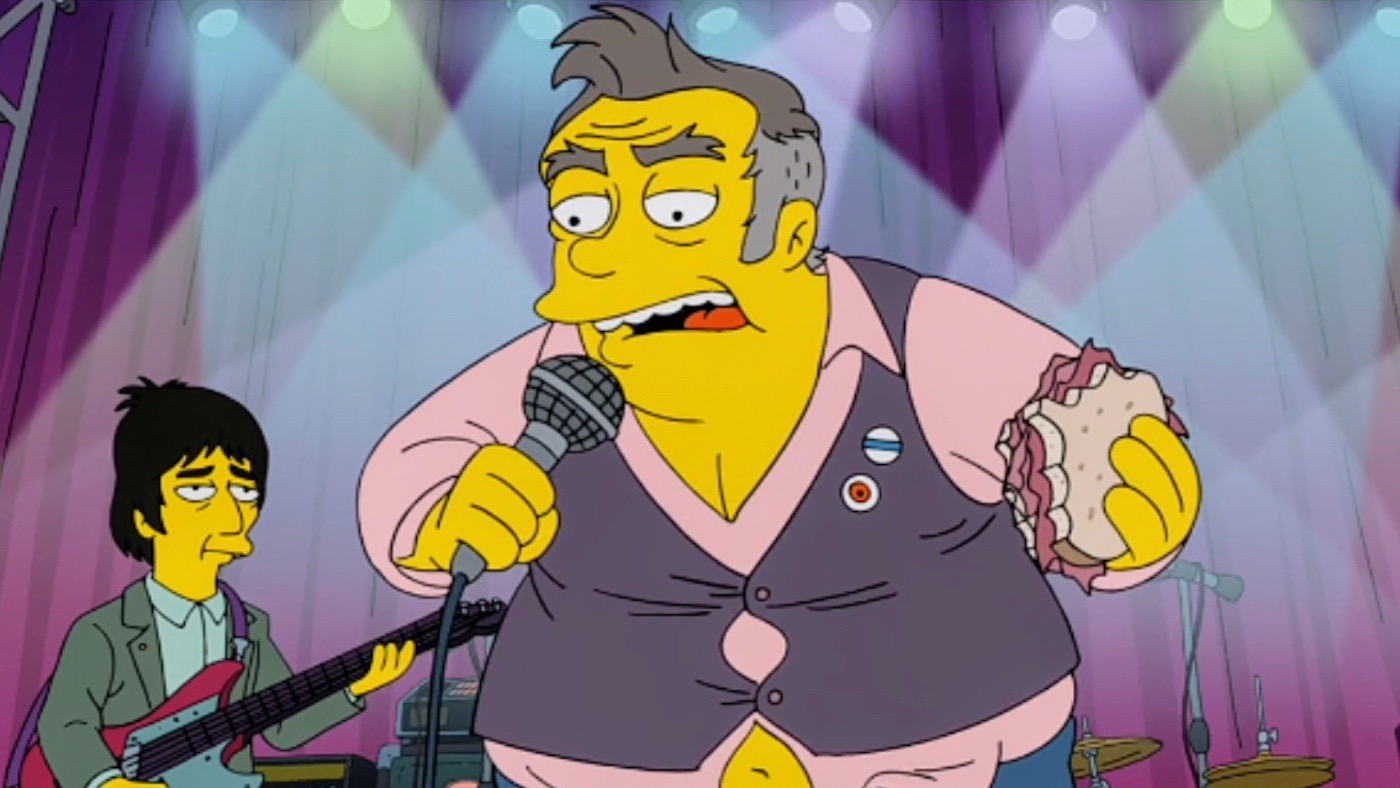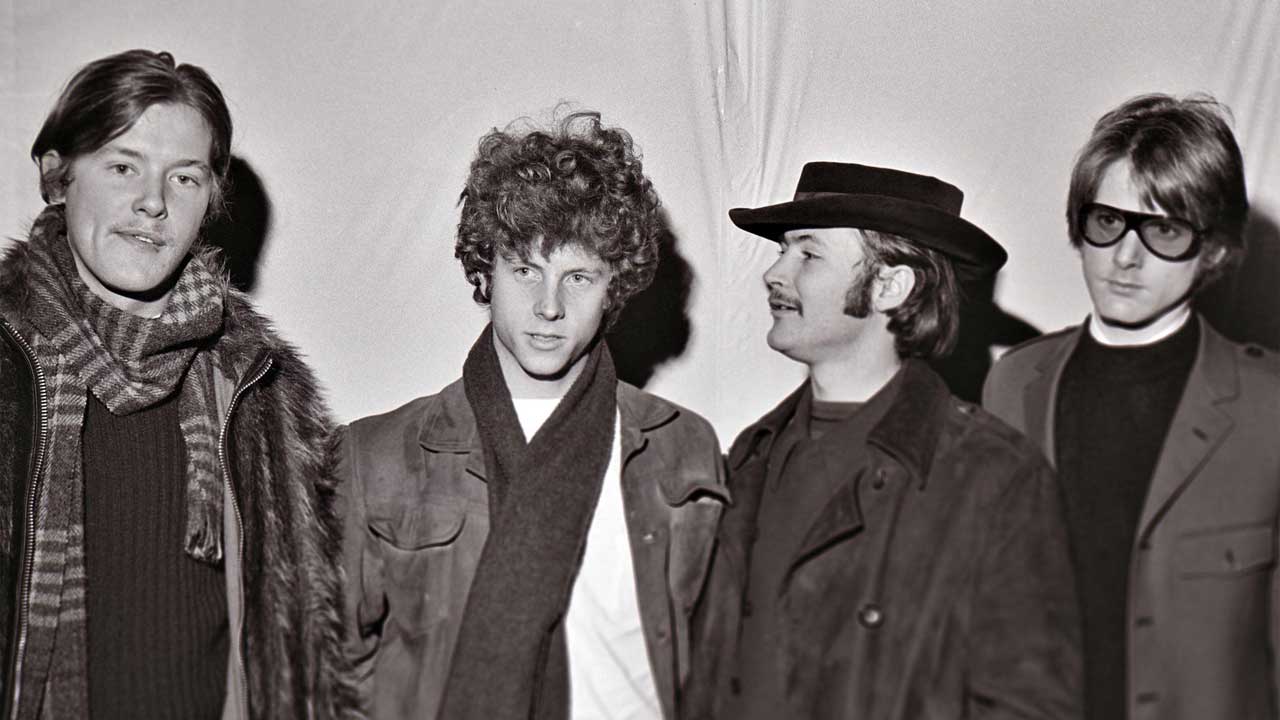
Select the newsletters you’d like to receive. Then, add your email to sign up.
You are now subscribed
Your newsletter sign-up was successful
Want to add more newsletters?
Morrissey is sad.
The latest reason that Morrissey is sad is because the writers of The Simpsons have allegedly been mean to him.
The writers of the most recent episode of the long-running cartoon series have been at pains to point out that new character Quilloughby, an unhappy British indie-rock vocalist from the 1980s, voiced by Benedict ‘Sherlock’ Cumberbatch, who befriends Lisa Simpson, is a fictionalised composite character inspired by various English post-punk icons, from Joy Division’s Ian Curtis to The Cure’s Robert Smith.
However, it’s not hard to see why Morrissey might have interpreted the episode, titled Panic On The Streets Of Springfield, as a thinly-veiled critique of just one specific singer, given the episode title and the fact that the character’s former band, The Snuffs, were said to have “dominated the ‘80s indie scene with their brand of literate, sardonic music that focused on Quilloughby's obsessions, especially his militant vegetarianism.”
Who could they possibly be referring to?
Morrissey’s management initially appeared quite supportive of the episode, having posted a teaser clip on the singer’s Facebook page. But, post-screening, it seems that they’re weren’t huge fans of how the fictional singer in the episode was portrayed, and a new posting on Facebook was highly critical of the episode, lamenting that the writing on the popular series has taken a “turn for the worst.”
“Poking fun at subjects is one thing,’ the post continues. “Other shows like SNL [Saturday Night Live] still do a great job at finding ways to inspire great satire. But when a show stoops so low to use harshly hateful tactics like showing the Morrissey character with his belly hanging out of his shirt (when he has never looked like that at any point in his career) makes you wonder who the real hurtful, racist group is here. Even worse — calling the Morrissey character out for being a racist, without pointing out any specific instances, offers nothing. It only serves to insult the artist.”
The latest news, features and interviews direct to your inbox, from the global home of alternative music.
Sad times.
Louder is the ultimate resource for alternative music coverage and the home of iconic rock brands Classic Rock, Metal Hammer and Prog. With a combined reach of over five million followers across social media, we're the largest and most influential alternative music website in the world.

